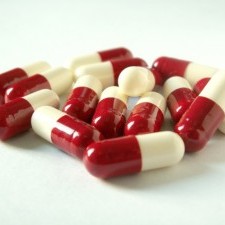Forget your Gucci handbag, you’ll just be scratching the surface…
We all know that the pharmaceuticals industry is big business.
The industry is facing considerable challenges however, with a large proportion of the “blockbuster” drugs due to come off patent in the next few years.

Drug companies are all too aware that they might well need a big breakthrough soon in order to sustain their historical levels of shareholder return.
A lesser known threat to the industry, and more direct threat to us individually, is the rapid growth in fake prescription drugs. Patents protect a patent holder against a legitimate business from copying their product. It’s not much use against criminality.
Fake Gucci handbags may be an annoyance to Gucci, but nobody dies when they are purchased. Fake drugs can be sufficiently dissimilar to the real product to allow diseases to build up resistance to the genuine drug. An overdose may be fatal in the short-term; an under-dose may be fatal in the longer-term.
So there’s a significant incentive for all concerned to maintain integrity in the production and logistics chain that gets the genuine drugs to those in need. Countries where prescription drug usage is culturally common and poorer countries are probably most at risk.
A Ghanaian company, mPedigree, has come up with an ingenious and simple solution. Working in conjunction with bona fide drugs manufacturers, it assigns a code to each packet of pills. This is then added to the box, in the form of a scratch card.
When customers buy the product, they scratch off the scratchcard style covering on the box and then send a free text message / sms with that code. If the product’s codes are genuine, a text message is immediately sent back to verify their authenticity. If not, the customer knows that they have just been sold a potentially dangerous dud.
Of course, there will be risks to this process, such as criminal elements infiltrating the process of allocating codes, but this is a smaller risk to contain than the wider risk of fake drugs, but this is a process that an auditor could even give an assurance opinion on.
Given the worldwide very high penetration of mobile phones and the cheapness of text messages, this is a fascinating solution to a big problem. Maybe in future it could be refined to also warn if drugs are genuine but beyond their sell by date (time expired drugs can also become dangerously lacking in efficacy).
What a wonderful, simple idea.







